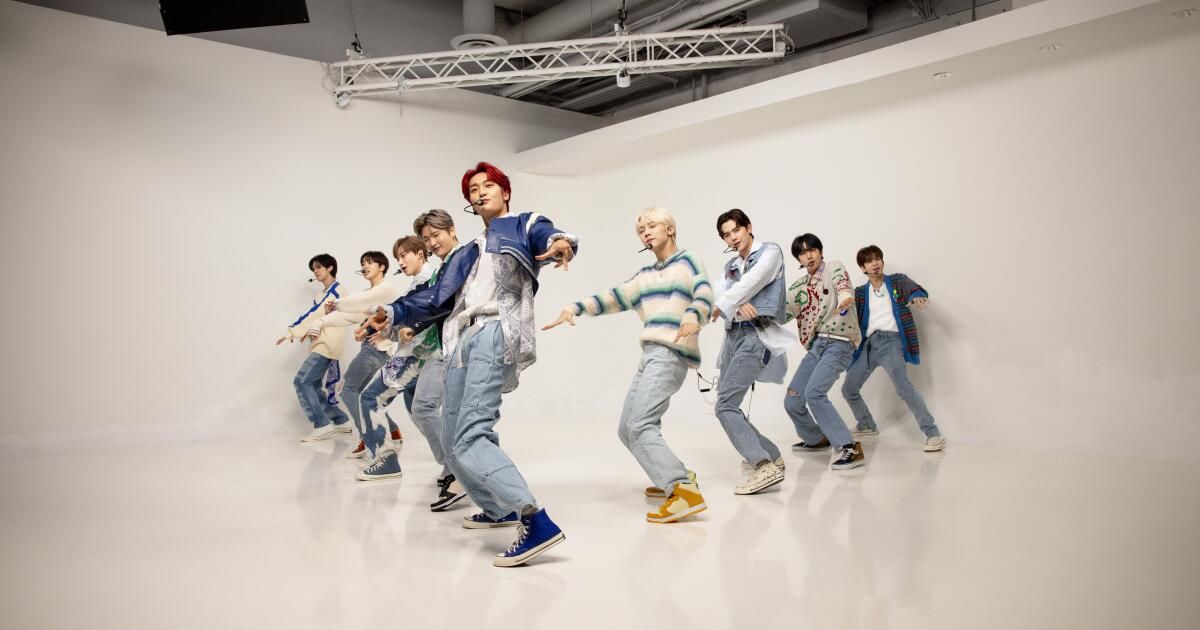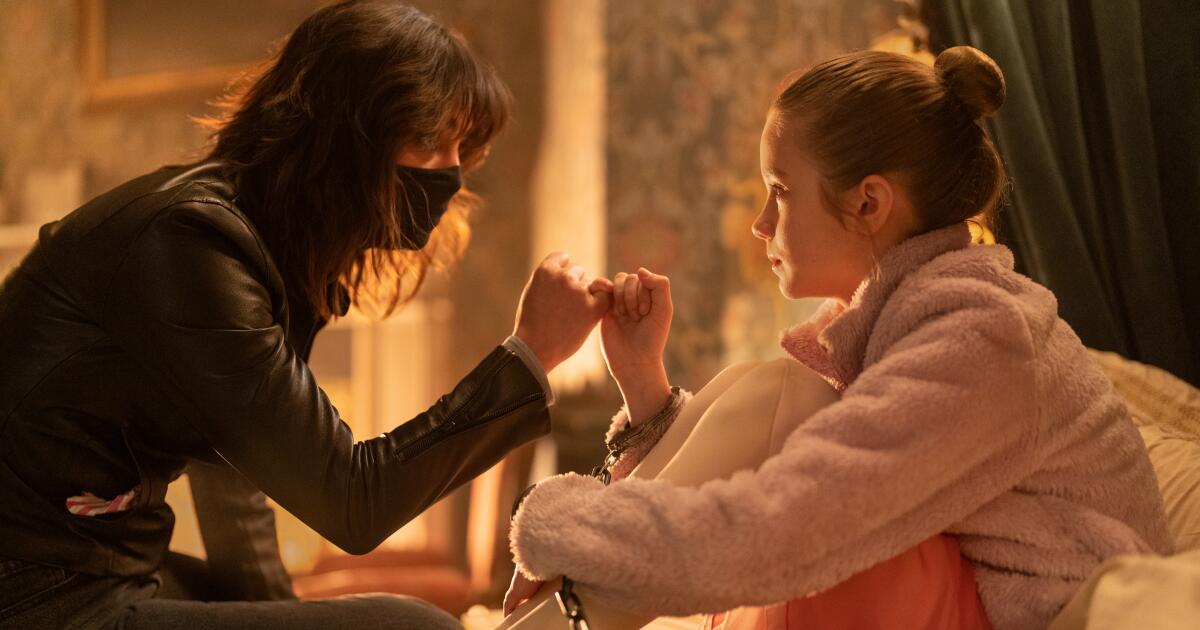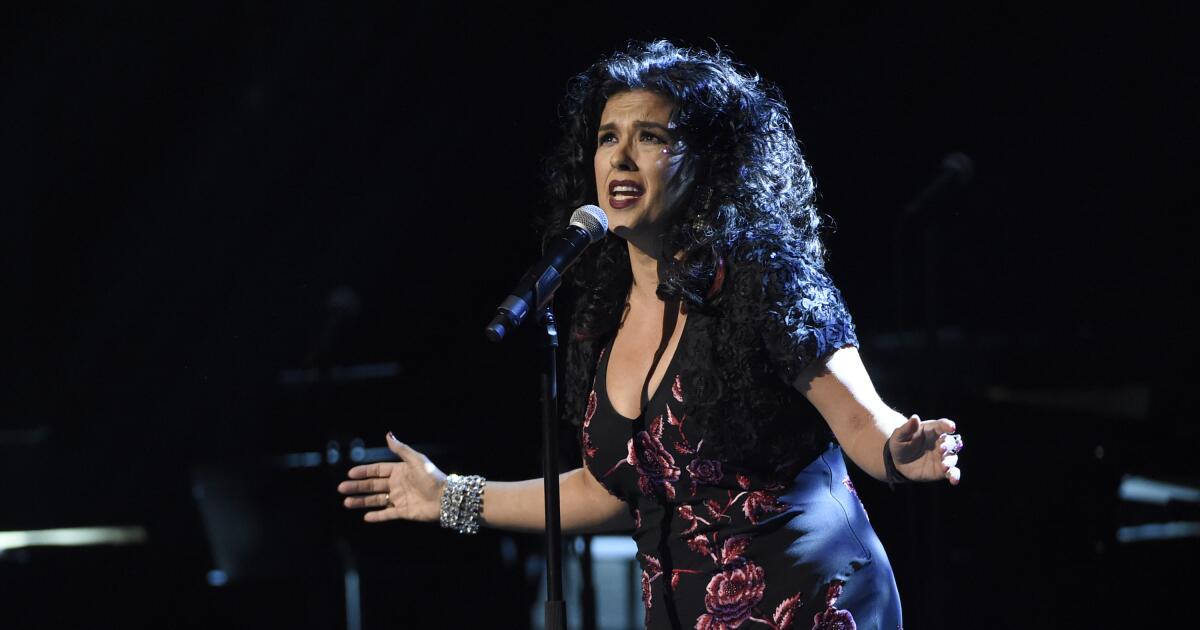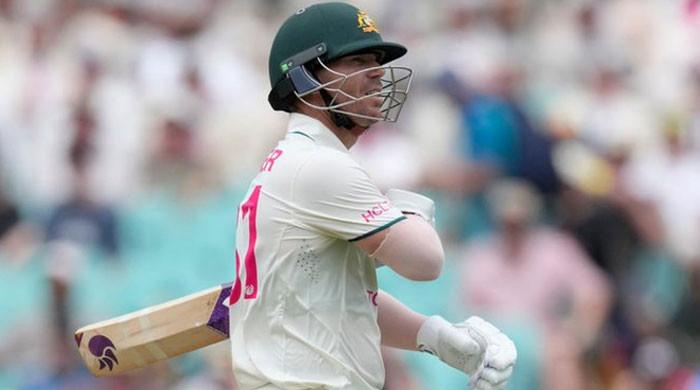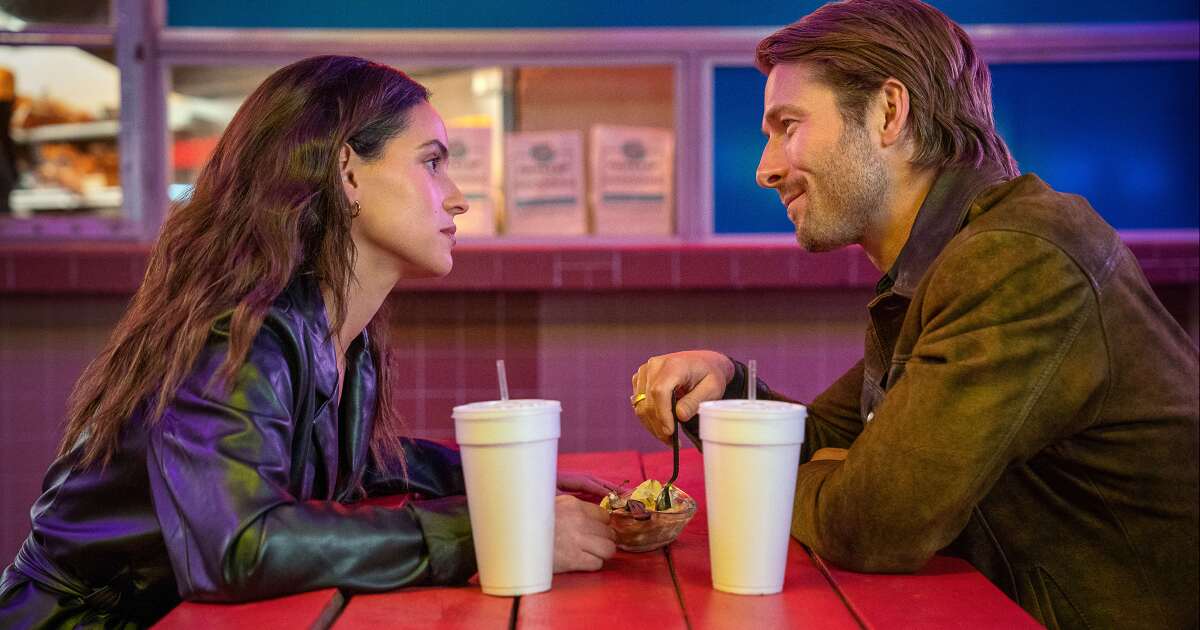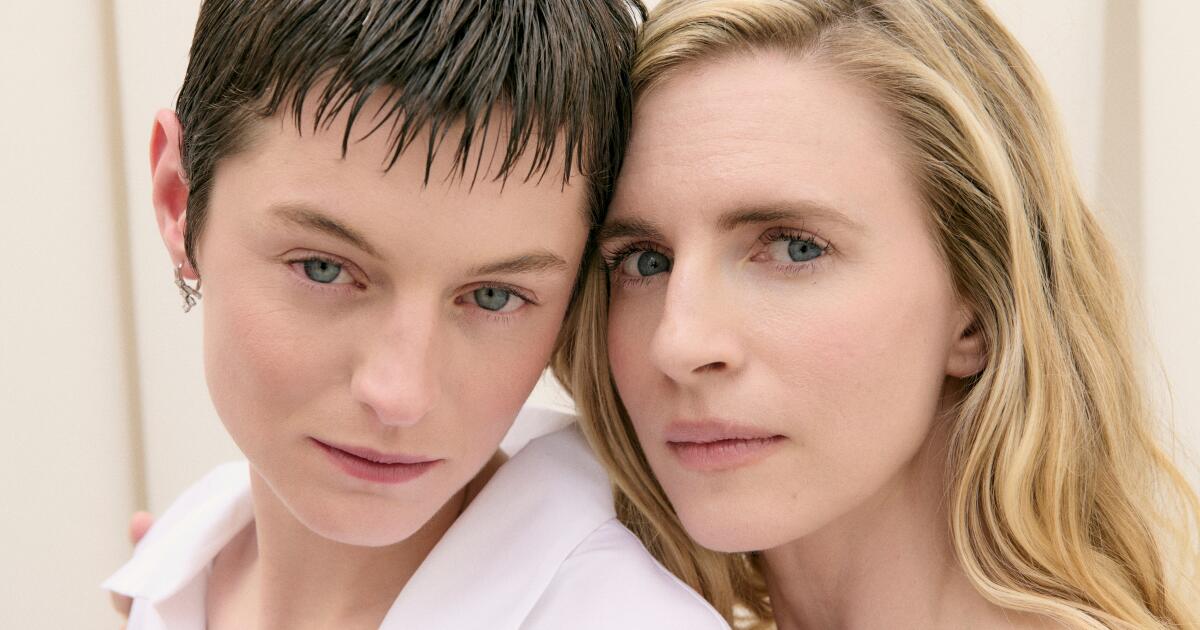K-pop’s cheerful music and imagery contrast with the rigorous training systems for its artists, making stories about the “dark side” of the industry compelling.
Apple TV+’s new six-part docuseries “K-op Idols” does a good job of balancing its narrative, touching on the darker aspects of strict beauty standards and a fanatical pursuit of perfection, as well as its lighthearted side: dreams coming true against near-impossible odds.
By pulling back the curtain on an often mysterious and misunderstood genre, the series provides insight into why fans around the world continue to be captivated by K-pop fandom, its high-octane performances, and its exhilarating cross-cultural experiences.
They focus not only on the brutal schedules, endless rehearsals and interpersonal dramas of their stars, but also on their inner lives: their motivations, fears and ambitions. They are humanised as artists in their own right, rather than as robots in a money-making machine.
Jessi interacts with fans during a show on “K-Pop Idols.”
(Apple TV+)
The series, which premiered Friday, is being helmed by Boat Rocker’s Matador Content, with several veteran producers on board, including Emmy-winning executive producer Todd Lubin, who captured the pop star’s precarious life with “Billie Eilish: The World’s a Little Blurry.” Rounding out the stellar team are co-executive producers Chris Kasick of “Citizen Sleuth,” Bradley Cramp (“Lord of War”), Elise Chung (“Bling Empire”), Jack Turner (“War Game”), Eric Yujin Kim (“Undoing”) and Sue Kim of “The Speed Cubers.”
Each roughly 40-minute episode moves between three storylines. Cravity, a nine-member boy group, struggles to find its footing after debuting during the pandemic. Jessi, a talented industry veteran, dreams of finding an agency that can take her to the next level. Rounding out the show's cast is international girl group Blackswan, whose dramatic arc underscores several serious issues, including the mental health of trainees and artists, contract fairness, and, as K-pop becomes more diverse, Making companies responsible for intercultural training and awareness-raising.
Of the three artists profiled, only Cravity is managed by Starship, a subsidiary of one of South Korea’s top five entertainment agencies. Considering how carefully K-pop agencies protect the career paths and reputations of their artists, many of the more candid moments captured are startling in their rawness.
“K-pop is not known for being the most open,” said producer Cramp, interviewed via Zoom alongside fellow producer Turner. “We wanted to create a global show that would appeal to Western audiences in particular, who weren’t familiar with K-pop at all. [the companies] I knew part of that was opening up their world a little bit more than they would if this was a show that was in an exclusive market of South Korea or Asia.
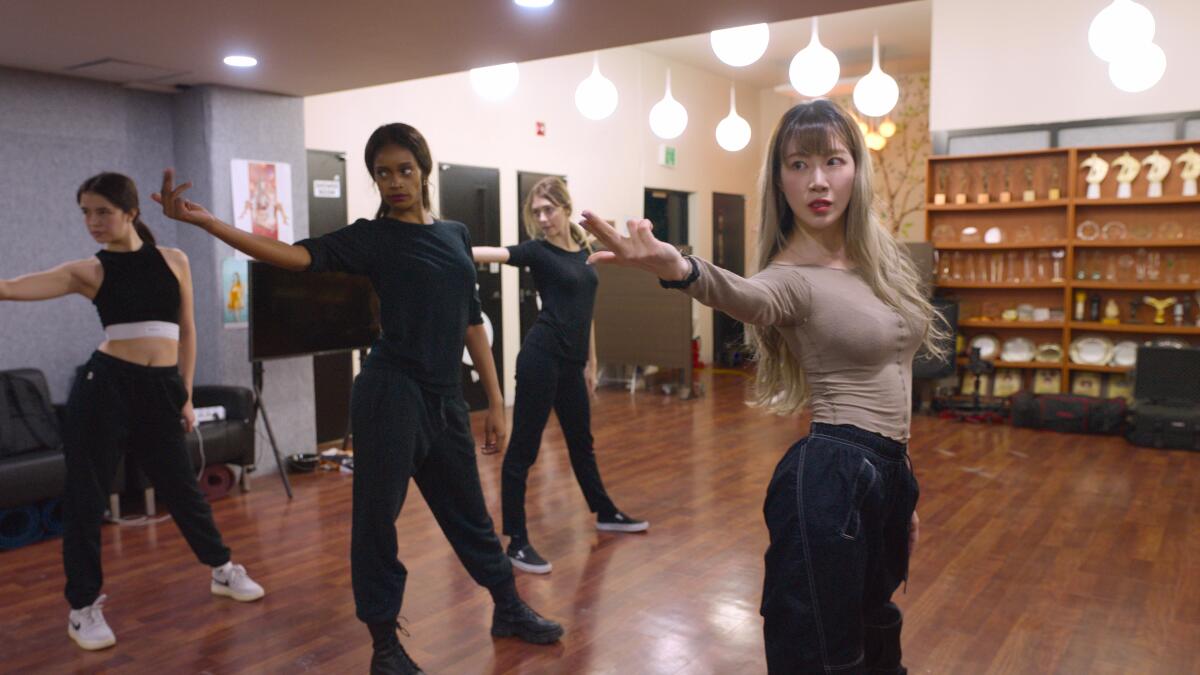
Blackswan members rehearse for “K-Pop Idols.”
(Apple TV+)
“As far as record label involvement,” Turner said, “we talked very carefully about what we were going to film in advance and trust grew and they were present at certain sessions but not involved in the editing. And in all cases [they] “I haven’t seen the series yet.”
That confidence paid off not only in dramatic scenes, but also in moments of dark humor. When asked on camera what makes Cravity “extra special,” one of their managers flatly answers, “Nothing,” as the group members need to work on basic skills and practice more. When off-camera, an agency voice tries to encourage a positive reframe, he answers earnestly, “I’m just being honest.”
In another quirky moment, two South Korean members of Blackswan (over the course of the series, three of the original four members are replaced) share their joy at being able to stay out of the house after curfew to go drinking in the South Korean city of Busan now that they’ve freed themselves from the clutches of their contract. It’s these little gems of candor contrasted with tender moments of vulnerability that make the series resonate with authenticity.
Each story follows the performers as they prepare for a major performance – a clever way to ensure a resolution while also thematically tying together three very different stories, especially since many of the issues raised deserve further exploration.
Rather than academics or industry experts, each episode is based on interviews with fans, mostly outside of concert venues. This, the directors said, was intentional, to keep the narrative focused on the connection between fans and artists.
“K-Pop Idols” took four years to make, with principal filming taking place between 2021 and 2023. In a subsequent email conversation, the directors said one of the biggest challenges in filming over such a long period was “dividing up the crew, running around Seoul to cover multiple shoots at the same time,” noting that the K-pop industry moves much faster than that in the West and maintaining different groups’ schedules was a challenge.
The production also followed its stars across Europe and the United States, and the core crew included a mix of Korean-Americans and locals. While local interpreters were essential to facilitating communication between artists and labels, production crew members occasionally served as important cultural liaisons between the American production and South Korean artists and agencies. “The first D.I., James Yoo,” the directors wrote, “was probably one of the most important in this regard. On one occasion, James was translating during a four-hour dinner with one of the labels.”
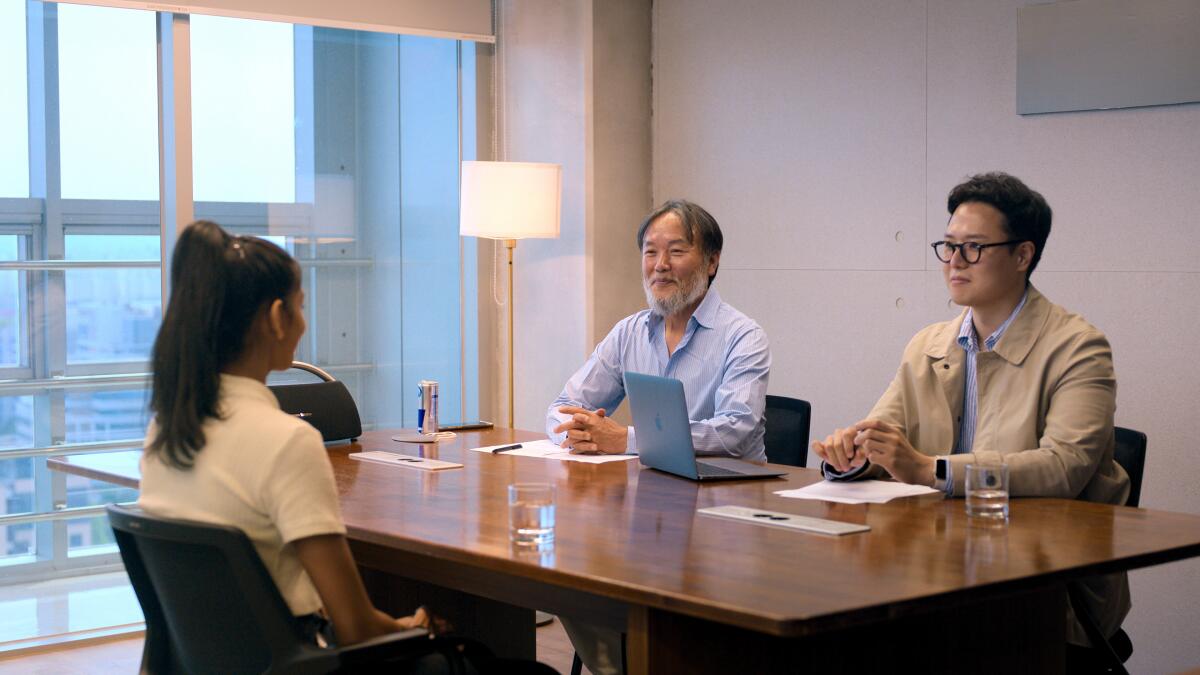
Mr. Yoon and Philip YJ Yoon interview a potential K-pop trainee on “K-Pop Idols.”
(Apple TV+)
“K-Pop Idols” begins with Jessi, a magnetic R&B singer and rapper in her 30s (the series uses her song “What kind of X?” in the intro) preparing for his first solo tour as an independent artist after parting ways with Psy's label Pnation (of “Gangnam Style” fame).
Jessi has never fit neatly into any mold. Raised in New Jersey, she represents a subset of Korean-American hip-hop and indie artists who find themselves caught between two cultures: sometimes at odds with more conservative Korean social norms and woefully underrepresented in their home country.
“I like being confident in my body,” Jessi said while choosing outfits for a tour in Episode 1. “But actually, I get a lot of criticism for that. If you want to be a K-pop idol, there's a specific path to follow.” look: pale skin, feminine, like thin, conservative and very petite girls.”
After so many years in the business, Jessi yearns for success on her own terms, only to discover how difficult it is without the support of an agency to navigate such mundane yet essential things as booking hotels and hiring stylists during a busy festival season.
Sometimes the way support is provided to an agency can be problematic, as in the case of Blackswan, who sees his mid-sized agency trying to deal with a dispute between two members and all the problems that arise from that.
Blackswan's plot also has some of the series' most embarrassing moments, courtesy of the company's CEO, Yoon Deung-ryong. Two of the group's new trainees, young but over 18, were temporarily housed at his private residence on the outskirts of Seoul.
Without much context, this doesn't sound good, just as his casual suggestion that an MP suffering from depression should increase her medication seemed at best an ill-advised joke and at worst dangerous.
There's an interesting K-drama-like subplot with Yoon's son Philip, whose eagerness to prove himself worthy of taking over the family business and winning his father's approval almost matches his father's own. Huge opinion on his contribution to K-pop and the fixation on securing his legacy.
But the real stars remain the resilient women who make up Blackswan’s line-up, both past and present, most notably Belgian-Senegalese Fatou Samba. Samba, who sings and raps in fluent Korean, as the only remaining original member, was tasked with uniting a new group comprised of Gabi Dalcin from Brazil; Sriya Lenka, India’s first K-pop idol; and Florence Smith, known as Nvee, who is biracial and from the United States.

Asked during a Zoom interview about protecting her mental health, Dalcin is emphatic. “I think that’s something that should be shown to all companies,” she said, referring to the series. “Sometimes it’s going to be hard for the artist to say, ‘I need help.’ It’s the company’s job to make sure the artist is OK.”
The role that friends, family, and bandmates play in helping artists maintain a sense of normalcy is also a recurring theme, with idols’ mothers making appearances throughout the video.
Allen Ma is a Taiwanese-American and one of nine members of Cravity, who are compared to popular labelmates Monsta X at the beginning of the series. Ma left his home in Hacienda Heights, Southern California, before graduating from high school to make it big in South Korea as a K-pop idol. He couldn’t have done it without the support of his mother and brother, and while he’s not the only member featured on “K-Pop Idols,” his story serves as a lens through which to view the sacrifices all of the members make.
One of the most touching scenes occurs when Cravity arrives in Los Angeles to perform at KCON 2022. Before the momentous concert, he is reunited with his proud mother, who hasn’t seen him in person in three years. Held by her from the small apartment he grew up in, he instantly goes from being an idol adored by fans to a son adored by his mother. In that moment, it all seems worth it.

